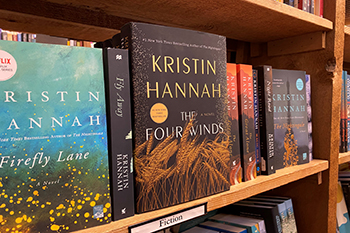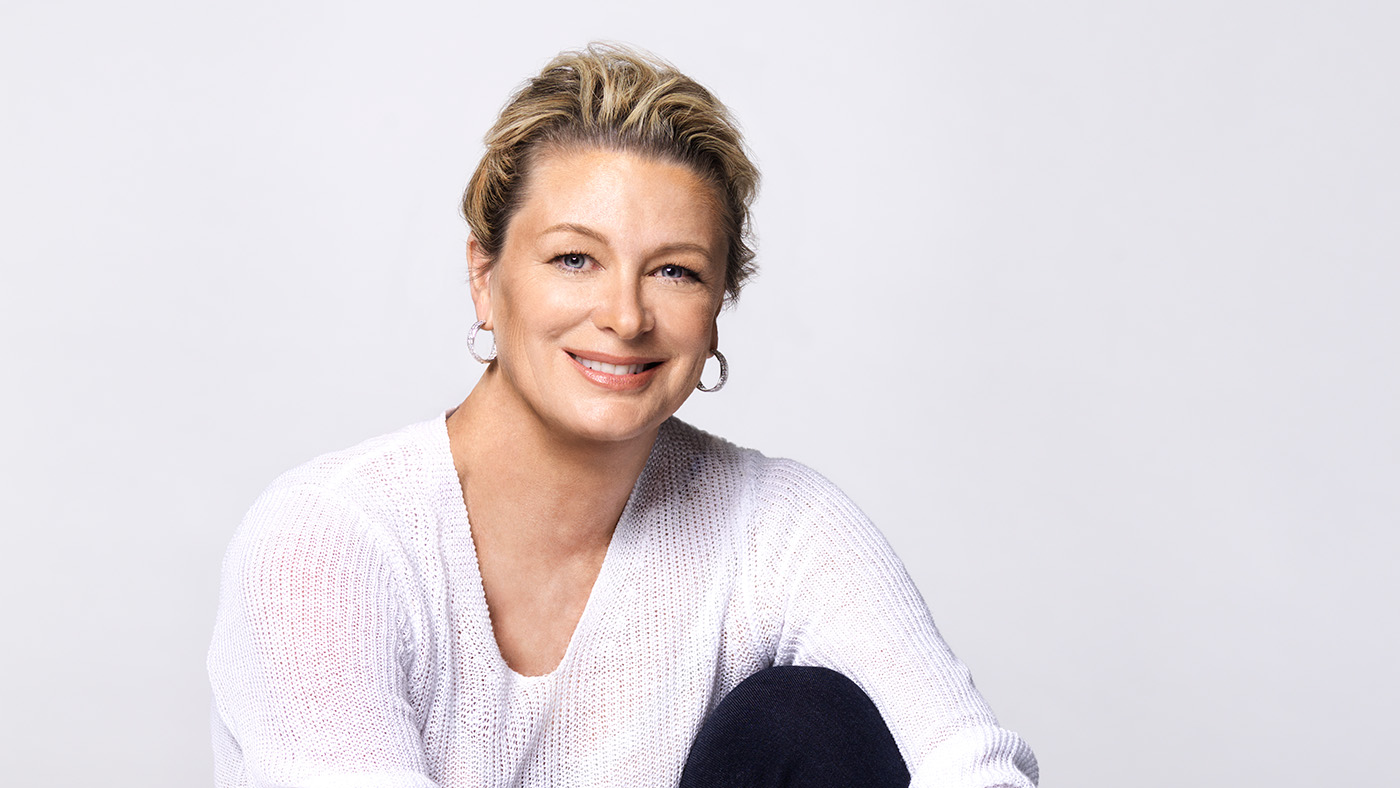This story originally appeared in Lawyer, Spring 2022.
When Kristin Hannah ’86 was in her third year of law school, her mother offered a prediction that made no sense whatsoever.
Her mom had advanced breast cancer, and Hannah would visit her every day after class as her mom struggled through her medical treatment. One day, Hannah happened to mention the difficulty of learning corporate tax law.

“She said, ‘Don’t worry about it, honey, you’re going to be a writer anyway,’ and it was the weirdest thing, because I had never even considered being a writer,” Hannah sad. “She saw something in me that I hadn’t really seen in myself yet.”
Three decades later, Hannah is not only a writer but also a successful and prolific one. She has written 24 novels, including the award-winning bestsellers “Firefly Lane” and “The Nightingale.” Three have been optioned for movies; one was adapted for a successful Netflix television series.
It all started with her mom’s prediction.
As a way to enjoy their remaining time together, the mother-daughter pair researched details for a potential romance novel set in 18th century Scotland. After her mother passed away, an early draft of the book was tucked away into a box deep in the closet, and Hannah carried on with her career as a general practice attorney.
But the thing about mothers, Hannah said, is that they’re often right. When a high-risk pregnancy restricted Hannah’s physical activity and caused her to rethink the demands of her legal career, she took up fiction writing once again. This time it was a tale about homesteading in the Yukon Territory set in the 1970s. She promised herself that she’d return to law practice if she couldn’t sell the book before her son went to kindergarten. The book sold.
To this day, Hannah still writes her novels in longhand on yellow legal pads, a lingering reminder of the career and legal education she credits with providing a solid foundation for the success that followed.
“I was good at writing briefs and looking at the law in a creative way, like how to apply precedent to the facts and learning to tell a narrative,” she said. “That really led into being a writer, because in a lot of ways, a writer pushes a narrative. I’m selling an idea. I’m making you believe what it is I have to say, and I learned all of that through legal writing.”
Law school classmate Corinn Bohn ’86, now an attorney in the special assault unit of the King County Prosecuting Attorney’s Office, remembered Hannah mentioning that it was difficult to study for exams and work on the novel with her mom at the same time.
“I told her she had to put the novel aside, and that exams were important for her legal career. I kind of lectured her about it,” Bohn said. “I’ve always thought the literary world should be grateful Kristin didn’t follow my advice.”
Hannah’s standard book-jacket biography still describes her as a lawyer-turnedwriter, though she’s now been a novelist 10 times as long as she was ever an attorney. That’s because she still values the skills she honed as a lawyer and law student.
“It was such a leg up. I felt it gave me some credibility,” she said. “Creative writing programs are wonderful for cultivating the imagination, but for a nuts-and-bolts skill set, you really can’t beat law school.”
For example, law school ingrained in her an aptitude for research, so she can make sense of vast amounts of information quickly and cohesively. As a novelist who specializes in historical fiction, Hannah says that ability has been especially useful.
For one project, she researched the women of the French resistance during World War II. For another, the siege of Leningrad. And for yet another, the field of child psychiatry. For her latest book, “The Four Winds,” she dove deep into the Great Depression and the lives of migrants who fled the Dust Bowl of the Southern Plains in search of better lives out west. Every book is an opportunity, as she put it, to “live and breathe” a fascinating new research topic.
“Something I found similar in the law and in writing is that there’s a continual stream of new questions, new ideas, and new situations,” she said. “Every couple of years, I am in a way reinventing what my job is, and I love that.”
As a novelist, Hannah is known for the strong female characters she brings to life. It’s part of her commitment to tell the stories of women throughout time – stories that have been overlooked because men were the ones writing history books.
That includes the important but often hidden role women have played in the development of the law. Hannah tends to avoid legal intrigue in her novels – “There are plenty of authors like John Grisham out there who do it so well,” she said – but Hannah does find herself drawn to the women who broke ground as legal pioneers in the 1930s and ‘40s.
“There were some amazing women who were going to law school and moving the civil rights and women’s movements forward,” she said. “This was at a time when women simply were not welcomed in the profession or respected, and I think it’s important for all of us to be really proud of those women and to make sure that our daughters know their stories.”

